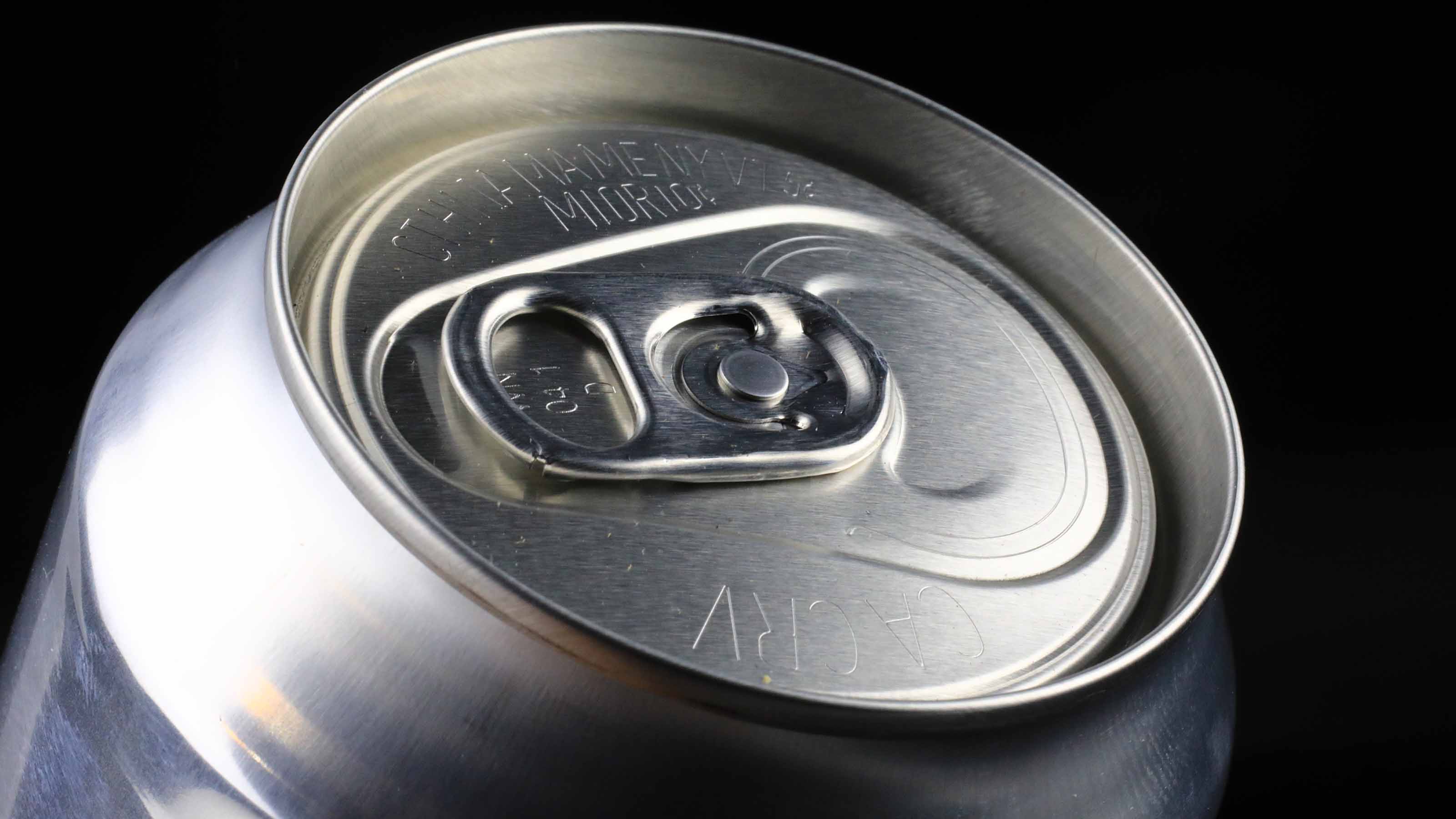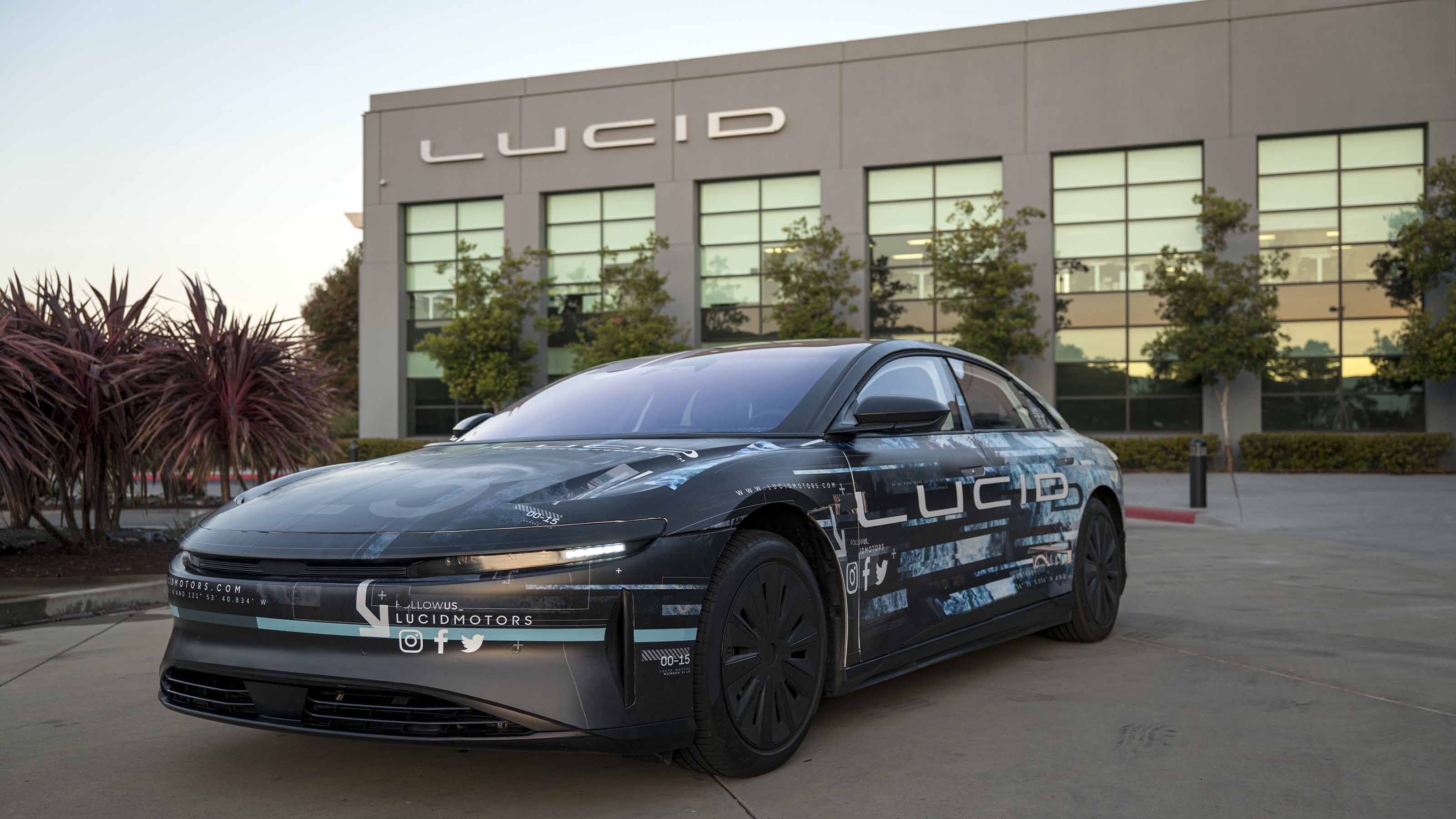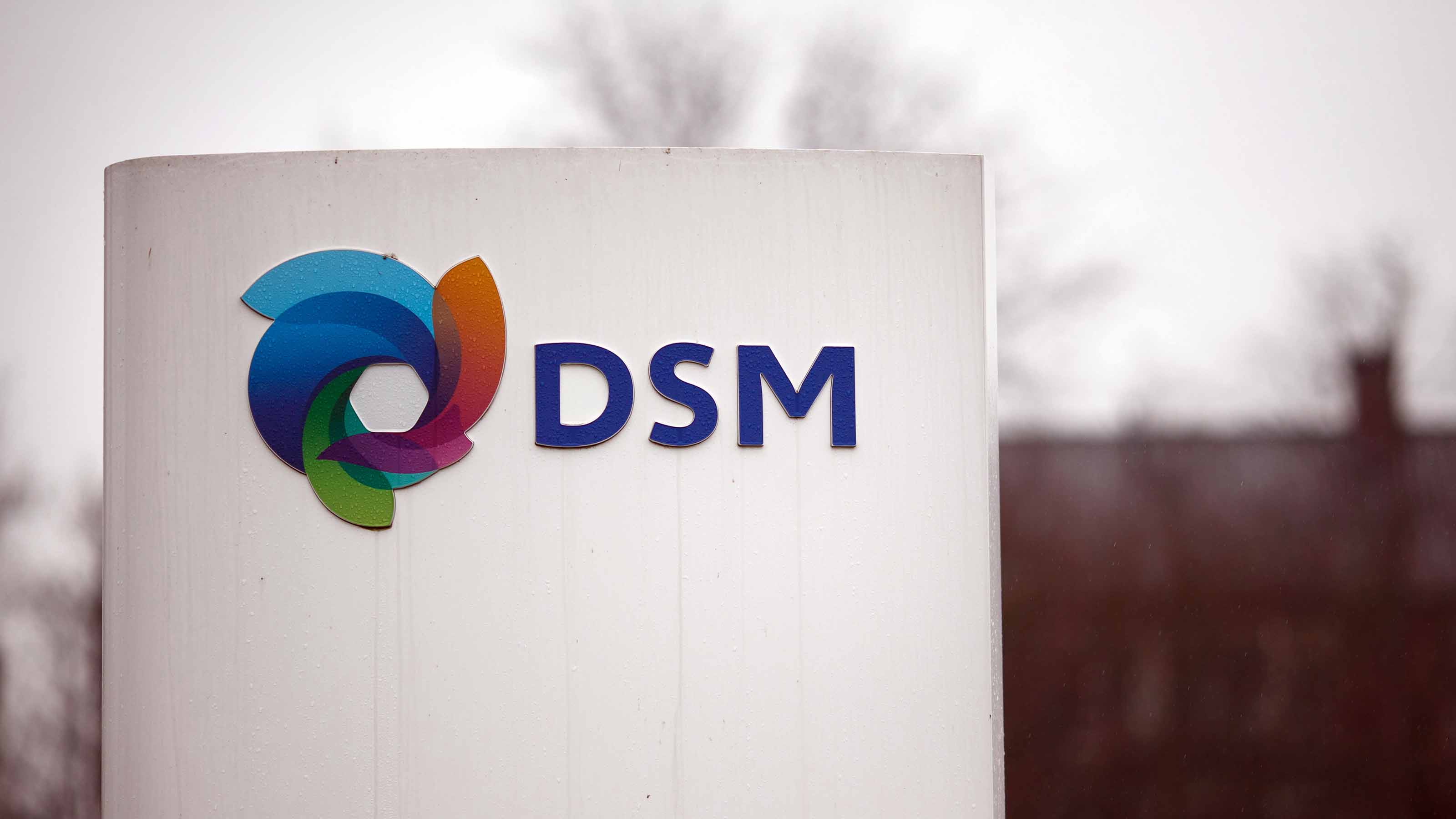5 Great Green Stocks Making a Direct Impact
These green stocks are working on solutions to climate change and are good buys now.


Profit and prosper with the best of Kiplinger's advice on investing, taxes, retirement, personal finance and much more. Delivered daily. Enter your email in the box and click Sign Me Up.
You are now subscribed
Your newsletter sign-up was successful
Want to add more newsletters?

Delivered daily
Kiplinger Today
Profit and prosper with the best of Kiplinger's advice on investing, taxes, retirement, personal finance and much more delivered daily. Smart money moves start here.

Sent five days a week
Kiplinger A Step Ahead
Get practical help to make better financial decisions in your everyday life, from spending to savings on top deals.

Delivered daily
Kiplinger Closing Bell
Get today's biggest financial and investing headlines delivered to your inbox every day the U.S. stock market is open.

Sent twice a week
Kiplinger Adviser Intel
Financial pros across the country share best practices and fresh tactics to preserve and grow your wealth.

Delivered weekly
Kiplinger Tax Tips
Trim your federal and state tax bills with practical tax-planning and tax-cutting strategies.

Sent twice a week
Kiplinger Retirement Tips
Your twice-a-week guide to planning and enjoying a financially secure and richly rewarding retirement

Sent bimonthly.
Kiplinger Adviser Angle
Insights for advisers, wealth managers and other financial professionals.

Sent twice a week
Kiplinger Investing Weekly
Your twice-a-week roundup of promising stocks, funds, companies and industries you should consider, ones you should avoid, and why.

Sent weekly for six weeks
Kiplinger Invest for Retirement
Your step-by-step six-part series on how to invest for retirement, from devising a successful strategy to exactly which investments to choose.
It's the end of business as usual. To save the planet, consumers, companies and governments all over the world are stepping up their sustainability game, or at least pledging to do so.
That's important, because it will take all parties working to fight climate change if we are to get to a net zero-world – when carbon emissions are balanced by absorption – by 2050, which is part of the goal of the Paris Agreement, an international treaty to tackle climate change that came into force in 2016.
Nearly 200 countries have committed to the agreement and set targets to reduce carbon emissions.
Companies are vital players, too. One-fifth of the world's largest 2,000 companies have committed to net-zero target emissions. And 90% of the companies in the S&P 500 Index now release sustainability reports, up from 20% a decade ago. Setting targets and measuring progress, says Katherine Collins, Putnam's head of sustainability investing, is an important step.
Consumers are changing their ways, too. Shoppers are sending a clear signal: Sustainability is no longer the exception, it's the expectation, especially for frequent, essential purchases such as groceries, household and personal care items, and clothing.
According to a 2020 U.K. study by accounting and consulting firm Deloitte, buying locally produced vegetables, cutting down on the consumption of meat and animal products, and reducing the purchase of products sold in single-use plastic packaging were top concerns for shoppers.
Where there's change, there's opportunity. It may take years for investors to see the benefits, and there will be bumps along the way. After logging stunning gains in 2020, environmentally focused investments – especially renewable energy stocks – are taking a beating.
"We have a long road ahead of us," says Haim Israel, of BofA Global Research. But the revolution is happening "because it must," he adds.
For those who want to join the fight as an investor and can deal with temporary tumbles, we've found eight innovative companies – three of them part of the so-called blue economy, focused on ocean sustainability. Some of our picks are more established than others, but each is poised to play an important role in finding solutions in this climate-challenged world.
But first, bear in mind a few guiding principles when you invest in climate-change fighters.
No company is perfect. China is the world's biggest maker of solar panels, but many of its plants are coal fired. Even so, if we use those solar panels to power our homes, we're helping the environment in the long run. "It's a life-cycle analysis," says Gabriela Herculano of iClima Earth, an impact-oriented investment firm. "You look at the manufacturing phase and the end-user phase. Solar panels have a lifespan of 30 to 35 years – time you’re not using fossil fuels."
Be patient. Whether a company is a consumer-products giant or a pure-play green firm, any significant environmental benefits from their goods or services could take years to realize. Athletic-wear company Lululemon (LULU), for instance, is trying to come up with a synthetic textile that can be recycled. (The global fashion industry produces 58 million tons of material every year. Much of that ends up in landfills or on a bonfire; less than 1% is reused to make new clothes.) It's early days, but "it's a great example of forward thinking about how to make a direct, sustainable impact" and an indication of potential long-term growth at the firm, says Putnam's Collins.
Stay open-minded. It would be wonderful to invest only in pure-play green stocks that are making direct, positive environmental impacts, but currently those opportunities are either too few or too nascent. Meanwhile, many large companies, which have the resources to explore and innovate, are making solid strides to combat climate change. These efforts may not impact their revenues or earnings much – for now – but they are notable.
Procter & Gamble (PG), for instance, developed a technology that PureCycle Technology is using to turn discarded carpets and drinking cups into ultra-pure polypropylene that is used to make other recyclable plastic products. Ford (F) is already taking orders for the F-150 Lightning, the electric version of its best-selling truck. The Lightning's battery is bidirectional, which means it can also serve as a generator that can power a home for up to three days when fully charged.
And Nvidia's (NVDA) computer chips helped scientists map rain forests in Peru. By studying the maps, researchers learned there were 36 different types of rain forests; they previously had thought there were only three. The discovery changed the government's strategy for protecting animals and the rain forests, says Andrew Niebler, a comanager of Karner Blue Biodiversity Impact fund. "Nvidia is a game-changer in terms of scientific advancement in biodiversity and nature."
In short, climate-change fighters, direct and indirect, are everywhere. Here are five green stocks making a direct impact to consider now.
Returns and other data, unless otherwise noted, are as of Feb, 4.

Allbirds
Reversing climate change is a company objective at Allbirds (BIRD, $11), the footwear start-up that launched in 2016 with a single model of sneakers sporting all-wool uppers.
Allbirds, which has a market value of just $1.8 billion, is incorporated as a public benefit corporation (PBC). That means its executives and the board of directors have a duty to maximize shareholder value and the company's environmental conservation goals.
The company takes carbon neutrality seriously. Allbirds already sources much of the wool it uses from sheep farmers that engage in regenerative agricultural practices; it has pledged to source 100% of its wool from sustainable farmers by 2025. And four years ago, with a Brazilian partner, it developed a shoe-sole material that it says has a negative carbon footprint (it's made of sugarcane, a low-carbon-intensity feedstock, in facilities powered by renewable energy).
Allbirds then shared its formula with competitors. At least a dozen footwear brands now use the material, including Puma, Timberland and TOMS.
What carbon Allbirds does emit – across every business area and along its supply chain all the way back to the woolly sheep – it offsets with investments in sustainability elsewhere. Since 2019, Allbirds' offsets have funded, among others, projects that improve soil health in Argentina and provide rural households in China with cookstoves to replace coal or firewood.
At $11 a share, this green stock trades at a more than 60% discount to the high it reached after its initial public offering (IPO) in November and below its $15 IPO price.
Morgan Stanley analyst Kimberly Greenberger recently upgraded the stock to Overweight, the bank's top rating. She expects 28% annual revenue growth in 2022, up from 24% the previous year. Its business is not yet profitable, but Greenberger says Allbirds is a distinctive ESG-driven brand with a potentially long runway ahead."

Ball
The more we reuse and recycle, the better off our planet will be – less trash means fewer landfills and lower greenhouse gas emissions. Ball, best known for its glass jars, is a big player in the so-called circular economy.
That’s because more than 80% of its business makes beverage cans, bottles and caps out of aluminum, a metal that can be endlessly recycled. According to the Aluminum Association, nearly 75% of all aluminum ever produced is still in use today. By contrast, only 9% of plastic ever produced has been recycled. And demand for aluminum is on the rise, too, after it was out of vogue for many years.
Shares in Ball (BLL, $94), which has a market value of $30.3 billion, trade at a premium to its peers. But performance has been flat lately, in part because beverage can sales in the second half of 2021 were lackluster.
But CFRA's Matthew Miller rates Ball a Strong Buy because of its "attractive market position in an aluminum can market that is experiencing the strongest growth trend in the last four decades." The stock trades at 23 times expected year-ahead earnings, and analysts expect 18% earnings growth in 2022.

Lucid Group
To achieve net-zero emissions by 2050, BofA Global Research estimates that electric vehicle sales need to rise from 20% of global car sales today to 60% by 2030 and 100% by 2035. That bodes well for EV makers, including Lucid Group (LCID, $28), which had its IPO in July.
There's a lot of excitement about Lucid. Though its first Air sedans rolled into customer garages only a few months ago, the company boasts a whopping market value of $45.4 billion.
BofA analyst John Murphy says Lucid is "one of the most legitimate" start-up electric vehicle automakers and a "competitive threat" to incumbent automakers. Underpinning his recommendation of the stock is the company's electric powertrain technology – Lucid has been the sole supplier of battery packs and software for Formula E, the electric-car motorsport league, since 2018 – and its efficient battery, which promises a longer range (500 miles) than the Tesla Model S Plaid (390 miles) or the Porsche Taycan Turbo S (201 miles).
Shares have fallen 48% since their November peak. That makes LCID more attractive. Even so, we’d look to buy this green stock on further dips.
Though revenues are expected to increase dramatically over the next two years – BofA's Murphy expects a fourfold increase between 2022 and 2024 – net losses will linger beyond that.

Planet Labs
Planet Labs' (PL, $6) network of 200 high-frequency satellites circle the globe all day, every day, snapping millions of images. These real-time images, which most Planet customers subscribe to receive, are vital to monitoring the health of agricultural crops, rain forests, rivers and oceans, among other things, over time.
The images can help farmers make decisions that improve crop yields and lower the use of water and fertilizers; companies can better manage their carbon footprint; and government agencies can deploy relief efforts to the neediest areas after natural disasters. "The information is hugely valuable and impactful," says Putnam's Collins, a comanager of Putnam Sustainable Future ETF (PFUT).
Helping the environment is part of Planet's DNA. As a public benefit corporation, its board and key managers have a duty to act not just to maximize shareholder value but also to advance the company's stated public mission, which is to accelerate humanity to a more sustainable, secure and prosperous world by illuminating environmental and social change.
Planet has a $1.6 billion market value and no earnings. But it logs more than $100 million in annual revenue – 94% in recurring subscription fees – from 700 customers, including global agriculture firm Corteva Agriscience, advanced data analytics company Kayrros, and Australia's Department of Natural Resources and Mines.
What's more, Planet's network is hard to replicate. "If I wanted to start a competing business, it would take a decade and a lot of money," says Collins. "That’s a high bar."
Wedbush analyst Daniel Ives rates this green stock Outperform and expects 29% annualized growth in revenue over the next three fiscal years. (Planet Labs’ fiscal year ends in January.)

Royal DSM
Cattle pose a big challenge for the environment for many reasons, among the largest being the methane gas they produce when they belch and break wind.
Methane is a more harmful greenhouse gas than carbon dioxide. According to the United Nations Food and Agriculture Organization, livestock produce 14.5% of global greenhouse gas emissions every year. Reducing that output would be a big win for the environment.
That's why we like Royal DSM (RDSMY, $47), or Koninklijke DSM, as it's known in its native Netherlands. The 120-year-old Dutch company started as a coal producer but now focuses on health, nutrition and bioscience.
Its cow-feed additive, Bovaer, cuts methane emissions and is now approved for use in Brazil, the world's biggest beef exporter, and Chile. Just one-fourth of a teaspoon of Bovaer per cow per day will reduce methane emission by 30% for dairy cows and up to 90% for beef cattle. That could be one of the biggest positive impacts on the environment made by a single company. David Winborne, of Pax Global Environmental Markets (PGRNX), a member of the Kiplinger ESG 20 list of favorite ESG funds, says the additive has "enormous potential."
DSM, which has a market value of $32.6 billion, has a strong niche in both its animal and human nutrition and health businesses.
The ingredients it supplies for (human) food, especially for immunity-optimizing products, are selling well thanks to the trend to make packaged food products healthier, says Pax's Winborne. And the company's operating profit margins are expanding.
Shares in this green stock, which trade in the U.S. as American depositary receipts, trade at 28 times expected earnings for 2022.
Profit and prosper with the best of Kiplinger's advice on investing, taxes, retirement, personal finance and much more. Delivered daily. Enter your email in the box and click Sign Me Up.

Nellie joined Kiplinger in August 2011 after a seven-year stint in Hong Kong. There, she worked for the Wall Street Journal Asia, where as lifestyle editor, she launched and edited Scene Asia, an online guide to food, wine, entertainment and the arts in Asia. Prior to that, she was an editor at Weekend Journal, the Friday lifestyle section of the Wall Street Journal Asia. Kiplinger isn't Nellie's first foray into personal finance: She has also worked at SmartMoney (rising from fact-checker to senior writer), and she was a senior editor at Money.
-
 Dow Leads in Mixed Session on Amgen Earnings: Stock Market Today
Dow Leads in Mixed Session on Amgen Earnings: Stock Market TodayThe rest of Wall Street struggled as Advanced Micro Devices earnings caused a chip-stock sell-off.
-
 How to Watch the 2026 Winter Olympics Without Overpaying
How to Watch the 2026 Winter Olympics Without OverpayingHere’s how to stream the 2026 Winter Olympics live, including low-cost viewing options, Peacock access and ways to catch your favorite athletes and events from anywhere.
-
 Here’s How to Stream the Super Bowl for Less
Here’s How to Stream the Super Bowl for LessWe'll show you the least expensive ways to stream football's biggest event.
-
 If You'd Put $1,000 Into AMD Stock 20 Years Ago, Here's What You'd Have Today
If You'd Put $1,000 Into AMD Stock 20 Years Ago, Here's What You'd Have TodayAdvanced Micro Devices stock is soaring thanks to AI, but as a buy-and-hold bet, it's been a market laggard.
-
 If You'd Put $1,000 Into UPS Stock 20 Years Ago, Here's What You'd Have Today
If You'd Put $1,000 Into UPS Stock 20 Years Ago, Here's What You'd Have TodayUnited Parcel Service stock has been a massive long-term laggard.
-
 If You'd Put $1,000 Into Lowe's Stock 20 Years Ago, Here's What You'd Have Today
If You'd Put $1,000 Into Lowe's Stock 20 Years Ago, Here's What You'd Have TodayLowe's stock has delivered disappointing returns recently, but it's been a great holding for truly patient investors.
-
 If You'd Put $1,000 Into 3M Stock 20 Years Ago, Here's What You'd Have Today
If You'd Put $1,000 Into 3M Stock 20 Years Ago, Here's What You'd Have TodayMMM stock has been a pit of despair for truly long-term shareholders.
-
 If You'd Put $1,000 Into Coca-Cola Stock 20 Years Ago, Here's What You'd Have Today
If You'd Put $1,000 Into Coca-Cola Stock 20 Years Ago, Here's What You'd Have TodayEven with its reliable dividend growth and generous stock buybacks, Coca-Cola has underperformed the broad market in the long term.
-
 If You Put $1,000 into Qualcomm Stock 20 Years Ago, Here's What You Would Have Today
If You Put $1,000 into Qualcomm Stock 20 Years Ago, Here's What You Would Have TodayQualcomm stock has been a big disappointment for truly long-term investors.
-
 If You'd Put $1,000 Into Home Depot Stock 20 Years Ago, Here's What You'd Have Today
If You'd Put $1,000 Into Home Depot Stock 20 Years Ago, Here's What You'd Have TodayHome Depot stock has been a buy-and-hold banger for truly long-term investors.
-
 If You'd Put $1,000 Into Bank of America Stock 20 Years Ago, Here's What You'd Have Today
If You'd Put $1,000 Into Bank of America Stock 20 Years Ago, Here's What You'd Have TodayBank of America stock has been a massive buy-and-hold bust.
